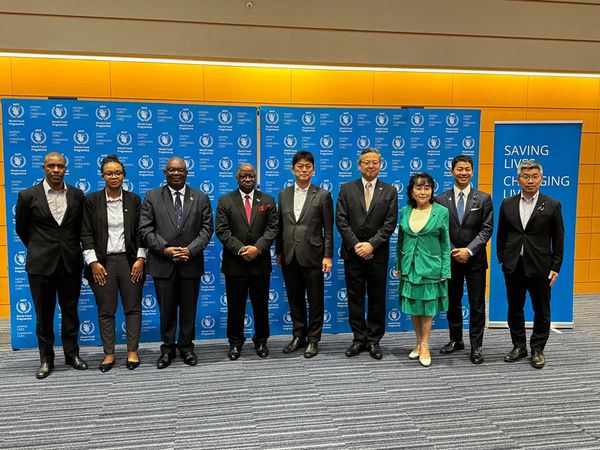Japanese Parliamentary League Urges Government to Assist SADC Countries with Weather Technology
The Japanese Parliamentary League of the World Food Program (WFP) has appealed to the Japanese government to extend assistance to Southern African Development Community (SADC) countries by sharing vital information from their advanced weather technology systems.
This call comes in light of the pressing need to support African nations in preparing for the adverse effects of climate change, particularly phenomena such as El Niño.
During the twenty-sixth session of the General Assembly of the World Food Program Parliamentary League of Japan, members emphasized the importance of leveraging Japan’s space satellite technology to enhance the preparedness of SADC countries in combating climate-related challenges.
They underscored that access to detailed weather information would significantly contribute to effective planning and bolster food security initiatives in the region.
Dr. Kuniko Inoguchi, Chief Secretary of the WFP Japanese Parliamentary League, emphasized the urgency of assisting SADC countries, especially those severely impacted by El Niño, with cutting-edge technology.
Dr. Inoguchi, a parliamentarian and former Minister for Gender Equality and Social Affairs, stressed that the information derived from Japan’s weather technology would guide agricultural practices, including optimal planting times and suitable crop varieties, thus promoting sustainability and resilience within the agricultural sector.
Highlighting the upcoming TICAD 9 summit, Dr. Inoguchi urged prioritization of this issue, considering it a vital strategy for mitigating natural disasters and ensuring inclusive development across the region.
Masahiro Komura, President of the WFP Parliamentary League, echoed Dr. Inoguchi’s sentiments, affirming the commitment of many parliamentarians to support initiatives aimed at human development.
Zambia’s Ambassador to Japan, Dr. Tobias Mulimbika, lauded technological advancements as aligning with Zambia’s long-term vision for agricultural production.
He emphasized the significance of Japan’s space satellite technology in mitigating the effects of climate change, particularly the drought-induced national disaster caused by El Niño, which has severely impacted Zambia’s food security and livelihoods.
Dr. Mulimbika highlighted the importance of utilizing weather information to optimize farming activities, enhance storage facilities, and maximize the benefits of agricultural machinery.
He expressed gratitude to the World Food Program for its ongoing support to Zambia and stressed the need to leverage technology to benefit farmers in severely affected countries such as Zimbabwe, Malawi, and Botswana.
Ms. Adeyinka Badejo, WFP Deputy Regional Director for Southern Africa, emphasized the importance of disseminating weather information to farmers through government channels, thereby supporting the development of affected countries and reducing reliance on food imports.
The statements were encapsulated in a press release issued by Faith Nabeene Chilube, First Secretary of Press and Public Relations at the Embassy of the Republic of Zambia in Tokyo, Japan, reaffirming a collaborative effort to address climate-related challenges and promote sustainable development in Southern Africa.



